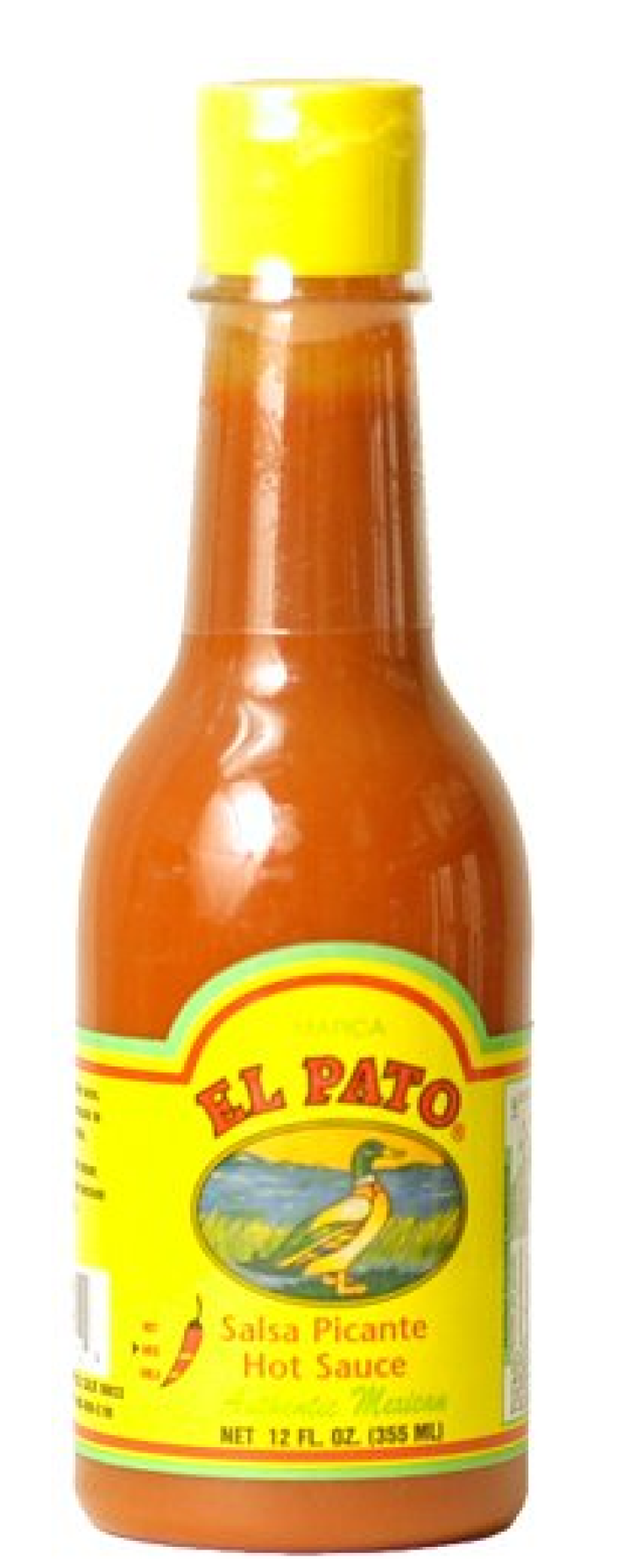Imported Mexican Hot Sauces Exceed 'Safe' Lead Levels; What Popular Brands To Avoid

If hot sauce is the spice in your life, it may be time to do a double take before you add this popular condiment to your food. While many of the hot sauces in the U.S. come from south of the border onto the supermarket shelves, into kitchen cabinets, and onto foods, not all imported sauces are created equal. Before you reach over to grab the exotic, spicy hot sauce bottle that will make your food muy caliente, there are four popular imported Mexican hot sauces that you should avoid to prevent lead poisoning.
Researchers at the University of Nevada Las Vegas (UNLV) conducted a study of imported Mexican hot sauces and found dangerously high levels of lead that surpass the Food and Drug Administration's (FDA) 'safe' lead levels for candy. Twenty-five bottles of imported hot sauces from Mexico and South America were obtained by the researchers in Clark County, Nev., with the majority of the sauces coming from south of the border because of the country's previous lead scandals. The bottles were tested for lead concentrations, pH, and leaded packaging. The findings of the study reported that four out of the 25 hot sauces tested, or 16 percent, had exceeded FDA 'safe' lead levels in candy— 0.1 ppm (parts per million) lead is the standard for unsafe levels in the sweets.
Why FDA 'Safe' Lead Levels In Candy Matter In Hot Sauce
A study conducted by a UNLV research team a few years ago found unsafe levels of lead in Mexican candies that were sold in the U.S. The salt and chili powder-coated candies were found to contain lead levels as high as 0.15 ppm of lead in Oregon laboratory tests, according to Oregon.gov.
Researchers have noted that the ingredients found in Mexican candies are similar to the ingredients found in a bottle of imported hot sauce. "The main sources of lead in the hot sauces were spicy peppers and salt," said Shawn Gerstenberger, interim dean of the School of Community Health Sciences and lead researcher of the study.
Currently, the FDA finds that fresh peppers do contain lead at non-detectable levels or trace levels, which the administration deems safe. However, spicy or chili peppers can be dangerously contaminated with lead when the soil deposits begin to build up on the peppers in open fields, says the FDA. The severity of lead poisoning from spicy peppers can be eliminated if croppers wash them thoroughly, according to Gerstenberger.
Salt, which can be mined from different parts of the world, has been linked to a greater likelihood of high levels of lead that can exceed the FDA's 'safe' lead levels for sweets. The California Department of Public Health (CDPH) warns consumers that candies and hot sauces that contain tamarind, chili powder, or salt from overseas contain higher levels of salt, especially if imported from Mexico, Malaysia, China, and India.
Imported Mexican Hot Sauces With Unsafe Lead Levels
The UNLV research team found the following four hot sauces to have dangerously high levels of lead:
El Pato Salsa Picante
Salsa Habanera
Salsa Picante de Chile Habanero
Bufalo Salsa Clasica
Lead Poisoning And Its Symptoms
The naturally occurring metal, lead, is used in everyday consumer products. However, FDA standards help monitor the exposure of lead levels in these products. According to the National Institute of Environmental Health Sciences, no amount of lead is safe so it is vital to eliminate exposure to lead as much as possible.
Children who are six years and younger are at greater risk of lead poisoning because they are still developing, and tend to put toys and other objects into their mouth that can contain bacteria harmful to the immune system.
To identify whether you or a loved one has lead poisoning, Mayo Clinic lists the following symptoms for newborns, children, and adults:
Newborns:
- Learning difficulties
- Slowed growth
Children:
- Irritability
- Loss of appetite
- Weight loss
- Sluggishness and fatigue
- Abdominal pain
- Vomiting
- Constipation
- Learning difficulties
Adults:
- High blood pressure
- Declines in mental functioning
- Pain, numbness, or tingling of the extremities
- Muscular weakness
- Headache
- Abdominal pain
- Memory loss
- Mood disorders
- Reduced sperm count, abnormal sperm
- Miscarriage or premature birth in pregnant women
For more information on lead poisoning, visit the American Lead Poisoning Help Association, Inc.



























